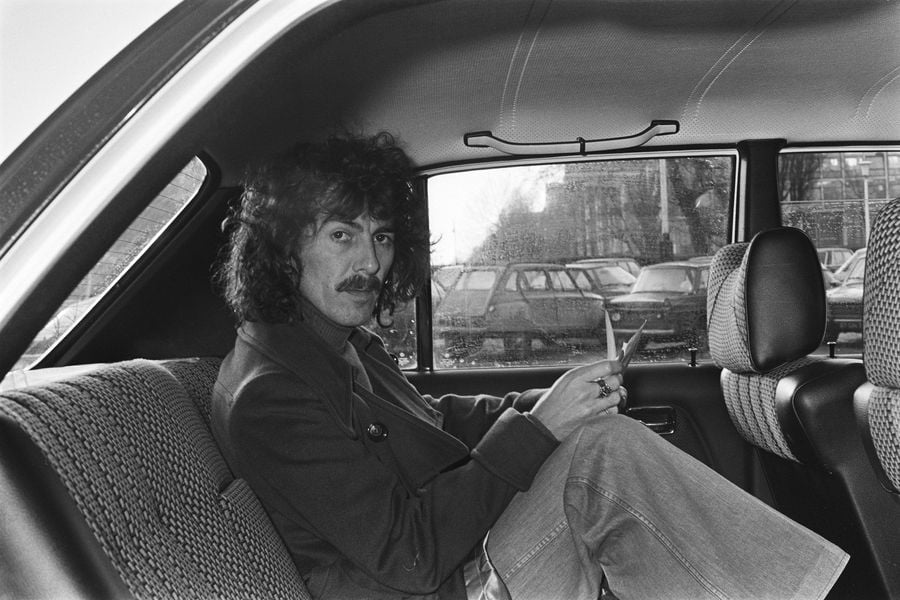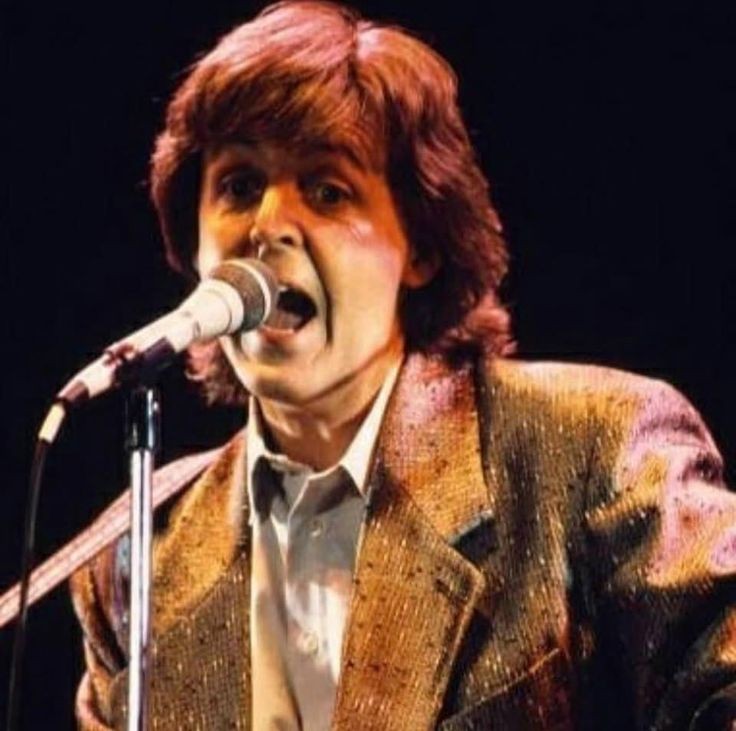“In music terms, I sort of skived for 1977,” Harrison admitted about his lack of writing prowess while talking to BBC Radio 1. “I went on strike. I just went to the races, actually, to the motor racing. I was just really getting a bit fed up with the music business to tell you the truth. I mean it had been a long time being in it and, you know, I just felt like a break. So I took 1977 away from music, and I didn’t actually write a tune during that year. I just sort of forgot all about music, went to the races, and then at the end of ’77 I thought, ‘God, I better start doing something.’”
In the meantime, he opted to focus on some other areas in his life. He was, after all, a man in love, and rather than waste time on activities that didn’t engage his heart, he chose instead to focus on the relationship that brought colour to his life.
Contrary to popular belief, it wasn’t Lorne Michaels urging that brought The Rutles together, but a segment that featured on Rutland Weekend Television. Set in the smallest section of England, Eric Idle’s sketch programme was a cabalistic showcase of music, mania and general good humour. It was delivered, produced and packaged on a shoestring budget, leading the former Python Eric Idle to joke, “and someone else was wearing the shoe.”
Harrison agreed to guest on the show, and Neil Innes – considered by many, including the creative cohorts, as the unofficial seventh Python- would drop in to perform pieces of his songcraft. Harrison duly appeared on The Rutland Show, entertaining audiences to the chiming opening bars of ‘My Sweet Lord’ before abandoning any semblance of familiarity for a bawdy tale of pirate ships and daylight robbery.
When the presenter (played with fervent energy by Idle) runs on to complain, Harrison simply turns to the camera to deliver the most infectious of grins that had served him so well in his life. With his long tousled hair and ivory eyes. Harrison looks every bit the ragged bohemian he undoubtedly thought himself to be, no matter what the world thought of him.
Then there was the presentation, unshackled and unvarnished, giving it a jauntiness and feeling of great personal accomplishment. The song began as ‘My Sweet Lord’, but turned into something else entirely, closing out the episode with great energy. And yet there’s definitely a knowing irony to the scene that must have appealed to the guitarist’s darker sense of humour: No matter how personal the nature of the song is to him, the entertainer is forced to pander to the opening strains of a ballad that barely belongs to him.
Whether or not Harrison was so inclined to read so deeply about himself, it must have been liberating for him to mock the impresarios who made it their personal mission to inform their artists exactly what their artistic worth was valued. He spent weeks defending the merits of ‘My Sweet Lord’, in front of the suits who couldn’t recognise an A flat from a basement flat. What these people needed was a sense of relief and relaxation. As it happens, Rutland Weekend Television did not take off in America, but The Rutles- a band concocted by Idle, and fronted by Neil Innes- did. Hosting an episode of Saturday Night Live in 1976, Idle pulled out a clip of The Rutles performing ‘I Must Be In Love’, a sprightly pop number that recalled the days when The Beatles wore mop tops and matching shirts.
And that’s where Lorne Michael stepped in. Sensing a feature was in the making, he encouraged Idle (and SNL director Gary Weis) to put together a feature mockumentary, and in doing so, beat the Spinal Tap guys by six years into producing the very first rock comedy-drama. Again, Harrison was happy to comply with a gentle ribbing at the sense of celebrity and cohesion, which likely explains why he was keen to play the type of hurried journalist who was destined to parrot off the same questions time and time again. Rutland Weekend Television was fairly funny – The Rutles: All You Need Is Cash is hysterically so.



